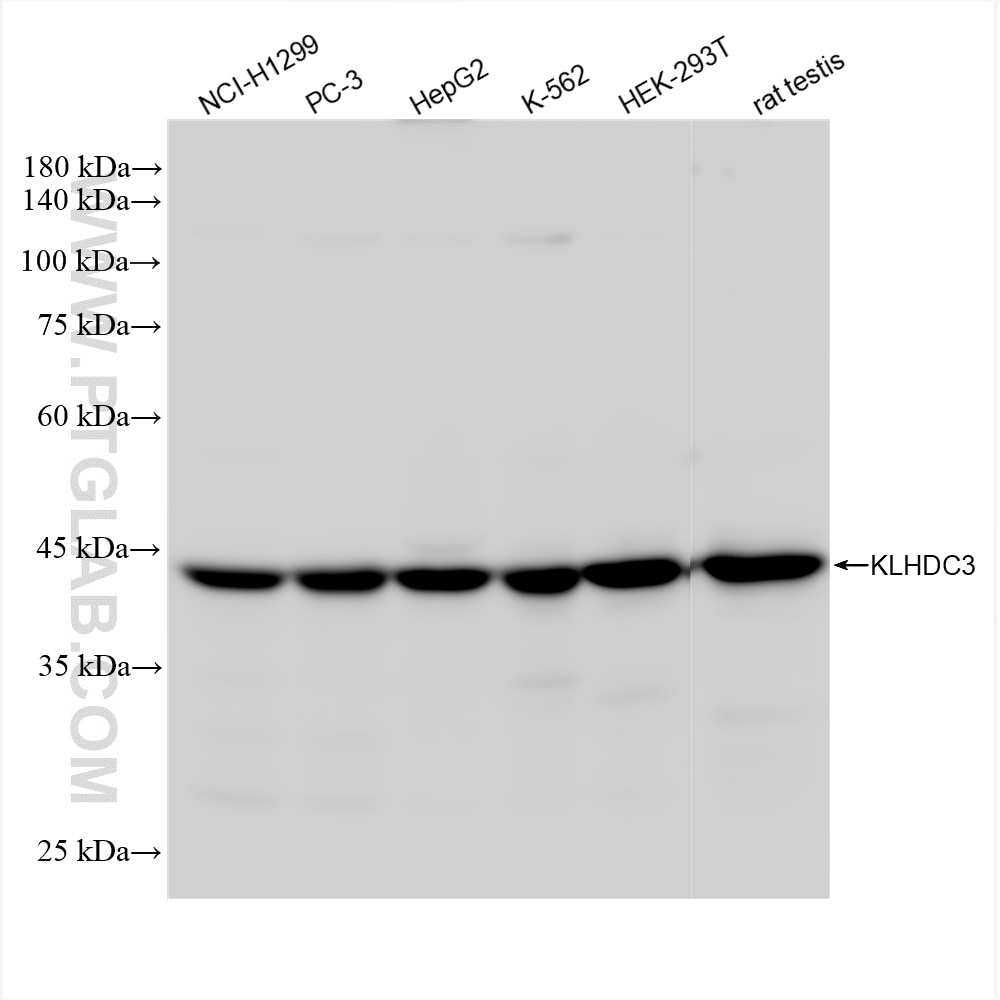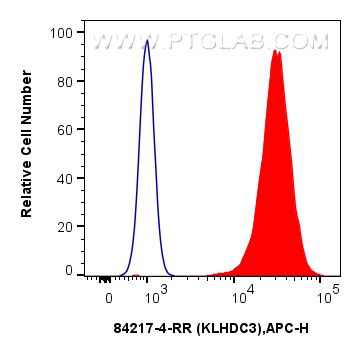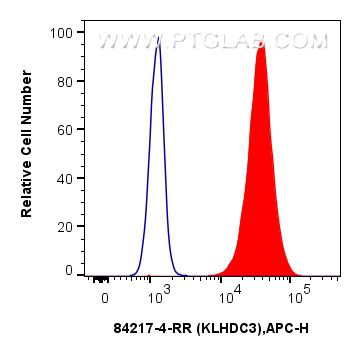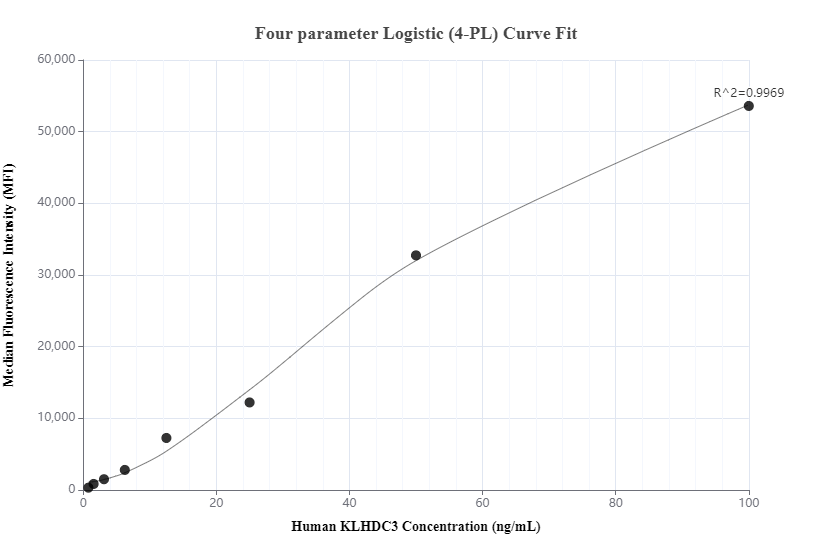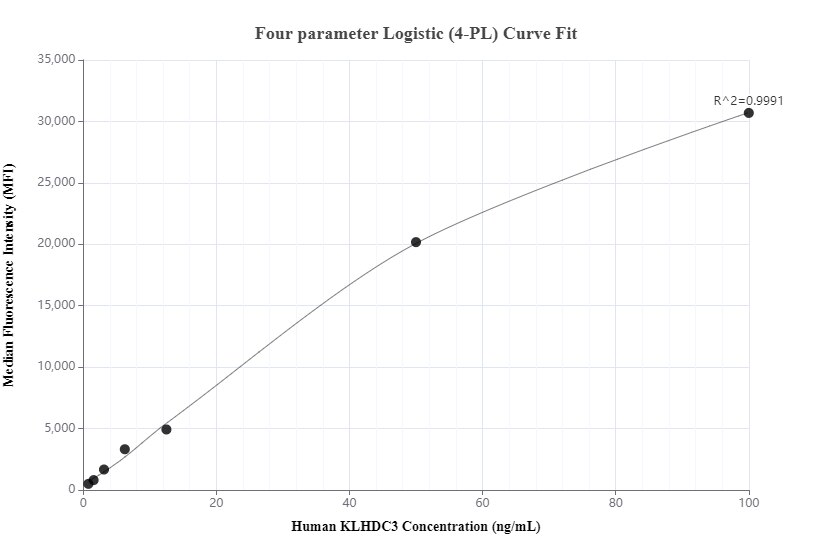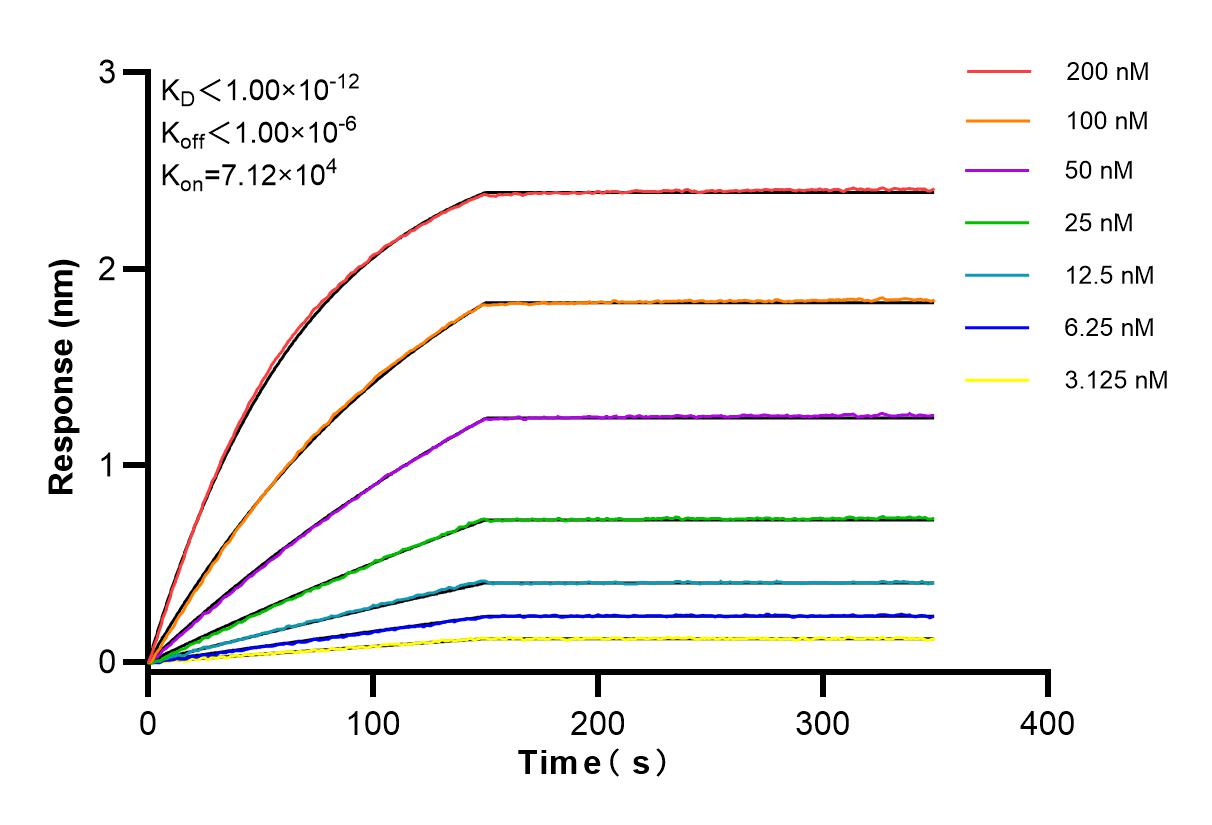Product Information
84217-4-PBS targets KLHDC3 as part of a matched antibody pair:
MP01151-2: 84217-4-PBS capture and 84217-2-PBS detection (validated in Cytometric bead array)
MP01151-3: 84217-4-PBS capture and 84217-1-PBS detection (validated in Cytometric bead array)
Unconjugated rabbit recombinant monoclonal antibody in PBS only (BSA and azide free) storage buffer at a concentration of 1 mg/mL, ready for conjugation. Created using Proteintech’s proprietary in-house recombinant technology. Recombinant production enables unrivalled batch-to-batch consistency, easy scale-up, and future security of supply.
This conjugation ready format makes antibodies ideal for use in many applications including: ELISAs, multiplex assays requiring matched pairs, mass cytometry, and multiplex imaging applications.Antibody use should be optimized by the end user for each application and assay.
| Tested Reactivity | human, rat |
| Host / Isotype | Rabbit / IgG |
| Class | Recombinant |
| Type | Antibody |
| Immunogen | KLHDC3 fusion protein Ag4879 Predict reactive species |
| Full Name | kelch domain containing 3 |
| Calculated Molecular Weight | 382 aa, 43 kDa |
| Observed Molecular Weight | 43 kDa |
| GenBank Accession Number | BC041793 |
| Gene Symbol | KLHDC3 |
| Gene ID (NCBI) | 116138 |
| Conjugate | Unconjugated |
| Form | Liquid |
| Purification Method | Protein A purification |
| UNIPROT ID | Q9BQ90 |
| Storage Buffer | PBS only , pH 7.3 |
| Storage Conditions | Store at -80°C. |
Background Information
The Kelch domain-containing protein 3 (KLHDC3), also designated PEAS, contains 5 Kelch repeats and may be involved in meiotic recombination process. The gene encoding KLHDC3 maps to chromosome 6, which contains around 1,200 genes within 170 million base pairs of sequence. Deletion of a portion of the q arm of chromosome 6 is associated with early onset intestinal cancer suggesting the presence of a cancer susceptibility locus. Porphyria cutanea tarda, Parkinson's disease, Stickler syndrome, 21-hydroxylase deficiency and maple syrup urine disease are also associated with genes on chromosome 6. KLHDC3 protein is mainly expressed in cytoplasm, also found in meiotic chromatin.
